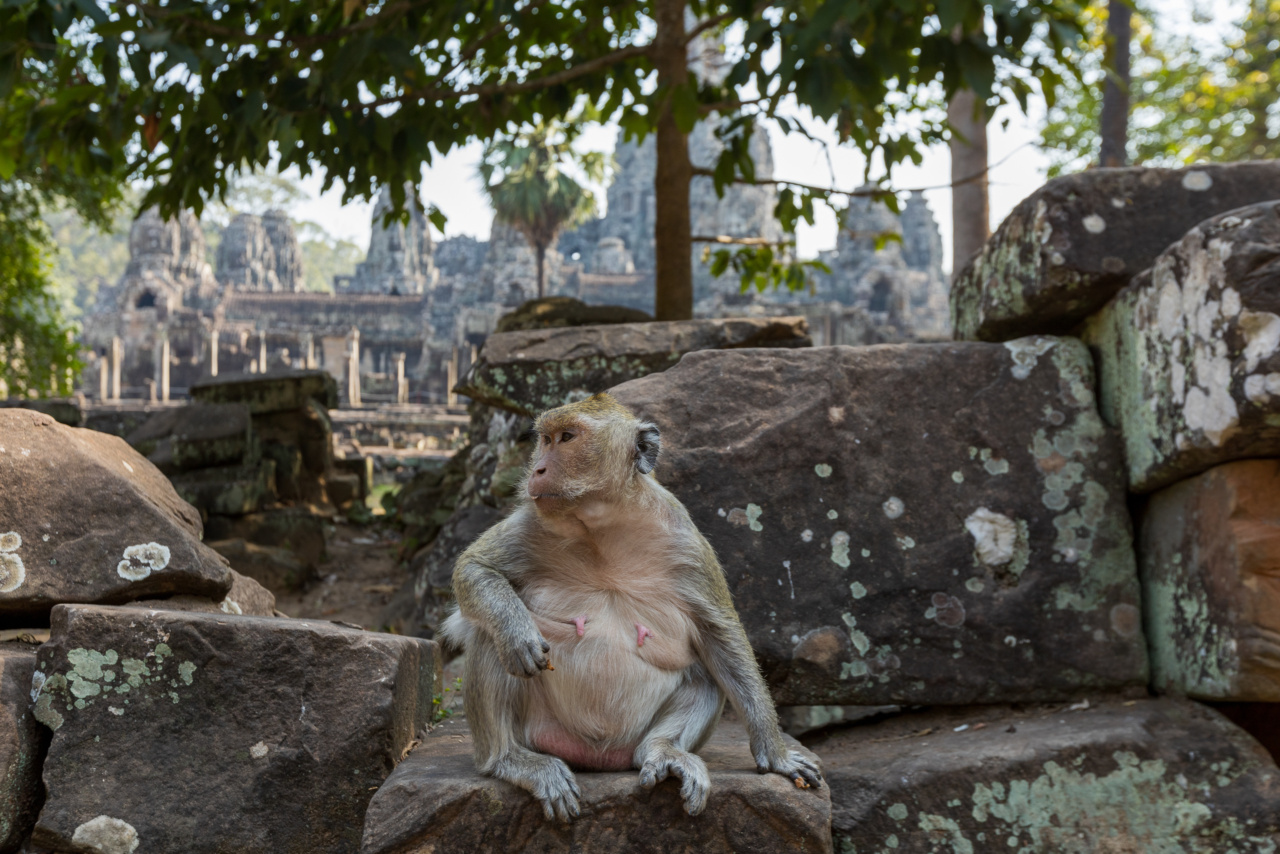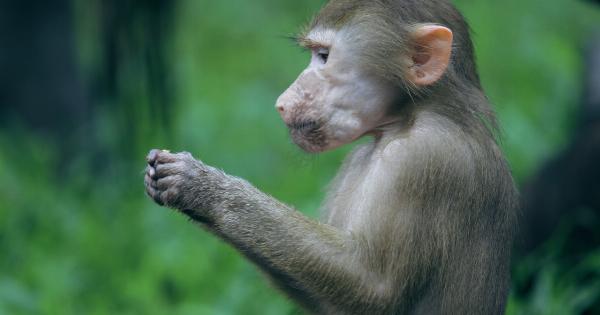A recent survey has found that hundreds of cosmetic products containing extracts from monkeys are being sold in the US. These products include makeup, skincare, and hair care products, as well as dietary supplements.
The survey, which was conducted by the Physicians Committee for Responsible Medicine (PCRM), aimed to highlight the widespread use of non-human primates in the cosmetics industry.
The use of non-human primates in the cosmetics industry
The use of non-human primates in the cosmetics industry is not a new practice. For decades, primates such as macaques and baboons have been used in experiments to test the safety and efficacy of cosmetic products.
These experiments involve applying the products to the skin, eyes, and other sensitive areas of the primates to see if they cause any adverse effects.
Animal rights activists have long campaigned against the use of primates in cosmetic testing, arguing that it is cruel, unnecessary, and ineffective.
They argue that animals have different skin types and reactions than humans, and that the results of animal testing are not reliable indicators of how a product will behave on human skin.
Despite these concerns, the use of non-human primates in cosmetic testing remains legal in many countries, including the US.
However, some companies have started to move away from animal testing in favor of alternative methods, such as in vitro testing using human cells or computer models.
Monkey-derived ingredients in cosmetics
While the use of non-human primates in cosmetic testing has attracted significant attention, less is known about the use of monkey-derived ingredients in cosmetics.
However, the PCRM survey has now shed light on this practice, revealing that there are hundreds of products on the US market that contain extracts from monkeys, including macaques and marmosets.
These extracts are used in a range of cosmetic products, including moisturizers, face masks, hair conditioners, and lipsticks. Some of the most common ingredients derived from monkeys include hyaluronic acid, elastin, and collagen.
Many cosmetic companies that use monkey-derived ingredients claim that they are derived from sustainable or ethical sources.
However, the PCRM argues that this is still a cruel practice, as the monkeys are often bred in captivity and subjected to invasive procedures to extract the ingredients.
Alternatives to monkey-derived ingredients
The use of monkey-derived ingredients in cosmetics is not the only option available to cosmetic companies. There are a range of plant-based and synthetic ingredients that can be used instead, providing the same benefits without the cruelty.
Cosmetic companies such as Lush, The Body Shop, and Pacifica Beauty have already made the commitment to using only 100% vegetarian ingredients in their products.
Some companies, such as Tropic Skincare, have gone further and are certified as vegan by the Vegan Society.
There are also a range of certification schemes, such as Leaping Bunny and PETA’s Beauty Without Bunnies, that help consumers to identify products that are cruelty-free and free from animal-derived ingredients.
Taking action against monkey-derived cosmetics
The PCRM survey aims to raise awareness of the widespread use of monkey-derived ingredients in cosmetics and encourage consumers to make informed choices about the products they use.
The organization is calling on cosmetic companies to stop using monkey-derived ingredients and move towards more ethical and sustainable alternatives.
It is also urging lawmakers to introduce legislation to ban the use of non-human primates in cosmetic testing and the sale of products that contain monkey-derived ingredients.
Consumers can also take action by choosing only cruelty-free and vegan products, and by supporting companies that have made the commitment to animal welfare.
The future of the cosmetics industry
The use of animals in the cosmetics industry is becoming an increasingly controversial issue, with more and more consumers demanding cruelty-free and vegan products.
In response, some companies are starting to move away from animal testing and animal-derived ingredients, and towards more ethical and sustainable alternatives.
This shift towards more ethical practices is not only good for animals, but it is also good for the environment and for human health.
By choosing cruelty-free and vegan products, consumers can help to reduce the demand for animal testing and animal-derived ingredients, and support a more sustainable and ethical cosmetics industry.
Conclusion
The widespread use of monkey-derived ingredients in cosmetics is a cruel and unnecessary practice that needs to end. The PCRM survey has highlighted the scale of this issue and the urgent need for action to be taken.
Consumers have the power to make a difference by choosing cruelty-free and vegan products and supporting companies that have made the commitment to animal welfare.
Together, we can build a more ethical and sustainable cosmetics industry that respects the rights and welfare of all living beings.






























